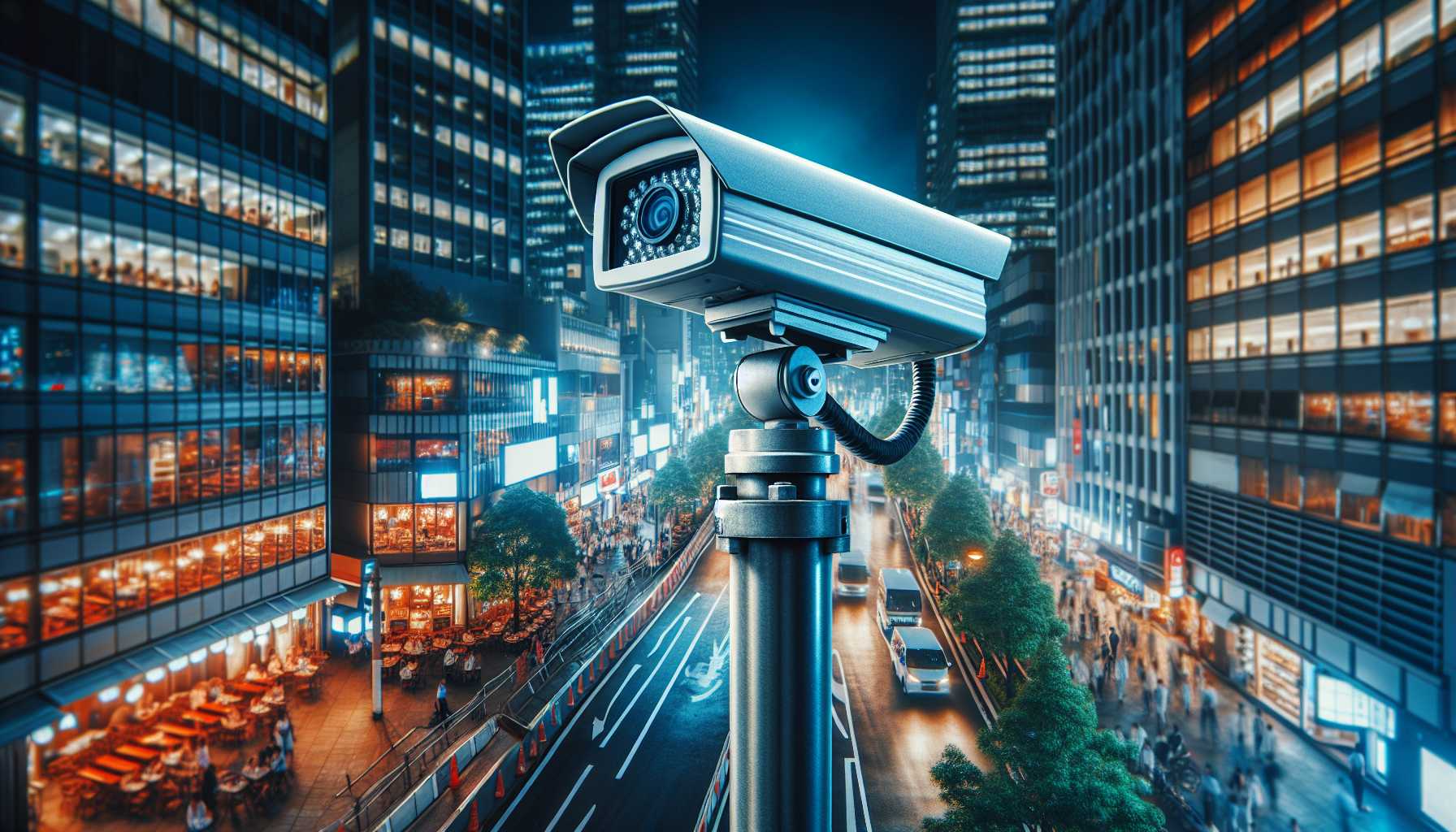## Surveillance Under the Pole: Privacy Concerns and Legal Challenges
In a saga that seems to be plucked right out of a dystopian novel, the quest to define privacy rights in an era of pervasive surveillance continues to unfold in the United States. A recent Supreme Court decision to let stand lower court rulings regarding the use of pole cameras without warrants has left civil rights advocates clutching their pearls in frustration. For the uninitiated, pole cameras are surveillance cameras typically mounted on utility poles to record outdoor activities—think of them as nosy neighbors on steroids.
U.S. courts have been as divided as a pineapple on pizza debate on whether this constant peeping violates Fourth Amendment rights. Some states, like Massachusetts and Colorado, have ruled that prolonged surveillance demands a warrant, while other federal courts have shrugged off such concerns. With AI advancements such as facial and object recognition bolstering these digital sentinels, the demand for clearer legal standards is more pressing than ever.
As a tech investor, I see a future where technology and privacy could potentially coexist. Advancement and legislation must walk hand-in-hand to serve the people’s interests without oppressive overreach. The smart money is on solutions that prioritize innovation while upholding civil liberties—a tightrope that we all hope the ever-watchful eyes of technology will respectfully tiptoe along.
## Health Insurance’s Digital Reckoning: The Fallout of Algorithms
The violent assassination of UnitedHealthcare CEO Brian Thompson has shockingly spotlighted the darker side of the health insurance industry, where AI and algorithms play judge, jury, and executioner of healthcare decisions. It seems that algorithms, supposedly unbiased, have been used to wrongfully deny treatments, sparking outrage and even dark humor on social media. The company has been accused of prioritizing profits over people, deploying AI to identify so-called overuse of mental health services and arbitrarily cutting them off.
It’s a controversial aspect of AI adoption within industries that should ideally put human welfare first. Insurance companies argue these technological tools help optimize and allocate resources more efficiently. Critics, however, compare these algorithms to cold-hearted accountants, cutting off care and cushioning profit margins. This echoes a broader theme within tech: the potential for AI to revolutionize efficiency can sometimes lead to unintended alienation of those it purports to serve.
As a tech investor, I’m optimistic that adaptive AI, driven by empathy alongside efficiency, will eventually correct its course under the right stewardship and scrutiny.
## Trump’s Czar: David Sacks and the Future of U.S. Tech Policy
Donald Trump’s pick of David Sacks as the so-called A.I. & Crypto Czar may stir the conversation pot more vigorously than a caffeinated startup founder at a crypto meetup. Sacks, a venture capitalist with a penchant for controversial opinions and ties to tech mogul Elon Musk, has now been tasked with guiding America’s policy into the tumultuous realms of artificial intelligence and cryptocurrencies.
Sacks’ appointment reflects a shift in Trump’s stance on cryptocurrencies, from skeptically calling Bitcoin a scam to championing the U.S. as the crypto-captain of the world. This rise in favor coincides with significant financial backing from the industry for pro-crypto candidates—a pragmatic maneuver on both sides.
In the tech industry, Sacks is a known quantity—a former PayPal Mafia member with history in scaling software ventures profitably. For AI and crypto enthusiasts, Sacks’ leadership might herald a more laissez-faire approach towards tech regulation, which could be a Pandora’s box of opportunity or an unfettered free-for-all, depending on how it unfolds.
As an observer and investor, I see this as a pivot point where the U.S. could either spearhead tech innovation or embolden runaway tech practices.
## Algorithms in Real Estate: A.I. Sets the Rent
The rental market, already under pressure like a soda can in a paint mixer, is grappling with the impact of AI-driven price-setting. Software like RealPage’s YieldStar is accused of fostering price collusion among landlords through its algorithmic magic, effectively hiking rents. In tech terms, think of it as a massive multiplayer online game where landlords share the cheat code for maximizing profits at the expense of renters.
Federal and state governments are now calling for a crackdown on algorithmic pricing practices, labeling them anticompetitive. The debate swirls around whether A.I. should participate in shaping economic landscapes to such an extent. Critics argue it exacerbates housing crises and reinforces inequality, while proponents insist these tools merely reflect and respond to supply-demand dynamics.
As we thunder towards an AI-touched future, I, like many tech investors, hope to see innovative solutions that help balance competitive free-market dynamics with the need for fair and affordable living standards.
## The Facial Recognition Question: To Change or Not Change Your Face?
As facial recognition technology advances like a sprinter powered by caffeine and relentless determination, so do privacy concerns. Questions about how much one needs to change their appearance to beat such systems proliferate like memes in a Reddit thread. From wearing masks, modifying facial features, to literally turning the other cheek, the tactics remain numerous yet not foolproof.
The irony is, in a world where changing one’s appearance in digital spaces is easier than blinking, altering a real-world visage to escape the digital eye is less practical and often ineffective. Privacy experts continue to advocate for stringent regulations rather than personal disguises.
As technology increasingly blurs the lines between dystopian fiction and contemporary reality, solutions will undoubtedly emerge from this digital conundrum. As an informed tech investor, I fervently support the push for protective legislation over the impracticality of constant identity obfuscation.
## Conclusion
As AI continues to wind its tendrils into every aspect of our lives—from law enforcement to the essential contours of our personal rights, insurance, and even our financial ecosystems—we must ask ourselves if these advancements serve us or control us. The hope for tech is not just to push boundaries, but to reshape them for a fairer, balanced future.





